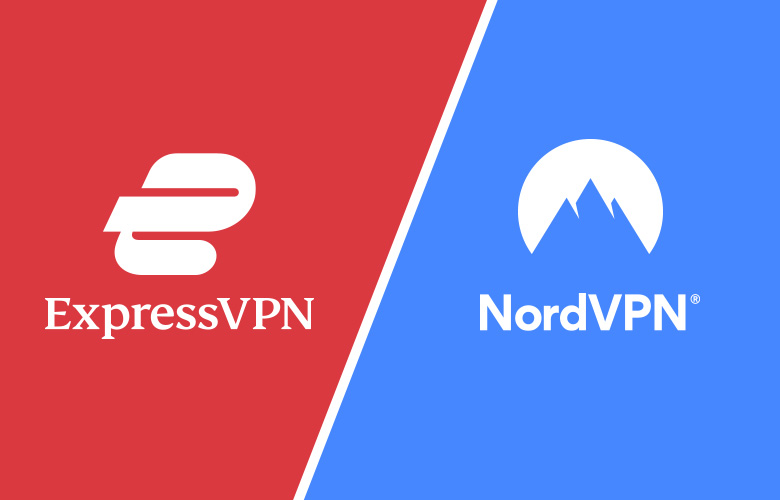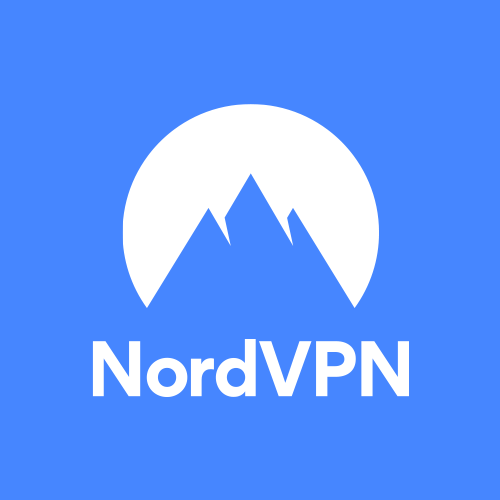Disclaimer: Partnerships & affiliate links help us create better content. Learn how.
If you’re in search of the best VPN service on the market, you’ll likely find yourself at a crossroads between two rivaling heavyweights like ExpressVPN and NordVPN. Each provider offers feature-rich plans and an extensive server network, with a few key differences.
We test their performance related to speed, privacy, streaming capabilities, and more to help you make the right selection for your needs.

ExpressVPN
- Unlocks Netflix, BBC, iPlayer & more
- Safe, unrestricted torrenting/P2P
- High-speed servers
- 3,000+ servers worldwide
- No kill switch on iOS
- More expensive than most VPNs

NordVPN
- User-friendly app
- Extensive list of security features
- Massive list of fast US servers
- P2P optimized servers
- Manual setup required in China
- Does not accept PayPal
| Pricing | |||||||||||||||
|---|---|---|---|---|---|---|---|---|---|---|---|---|---|---|---|
|
ExpressVPN vs. NordVPN: Performance
Generally, VPN technology slows down internet speeds to some degree, yet there are some VPN providers that minimize this negative effect. In our testing, we looked at speed loss and speed consistency as the main indicators of each VPN’s performance. Both ExpressVPN and NordVPN did well, but NordVPN proved a little better.
On average, NordVPN servers performed at about an 18% speed loss of our original testing speeds, whereas ExpressVPN saw about double that at 33% speed loss. These rates came from US and European VPN servers. We saw a further slump in internet speeds on further servers. By a marginal count, NordVPN tests faster in practice.
ExpressVPN vs. NordVPN: Privacy
Before naming a winner in this category, know that both ExpressVPN and NordVPN hold their services to the highest privacy standards. In fact, each provider goes above and beyond to conceal their parent companies, promote a zero-logs policy, and invite third-party auditors to assess their services.
There are, however, a few discrepancies between the two providers that place NordVPN ahead of ExpressVPN in regards to privacy.
Provider Headquarters
Depending on a VPN’s headquarters, a provider may be obligated by law to store and/or hand over customer data when subpoenaed by government officials. To compare, NordVPN is located in Panama, and ExpressVPN is located in the British Virgin Islands (BVI).
While neither country requires companies to store or forfeit customer data, BVI, unfortunately, has strong ties to the UK, a country known for its strict regulatory laws. And, even though ExpressVPN affirms that only the BVI High Court has jurisdiction over records, there’s plausible uncertainty. For these reasons, NordVPN has a slight advantage.
Privacy Policy
NordVPN and ExpressVPN both offer airtight privacy policies. They state that what little data is stored is itself encrypted and not available to government agencies. NordVPN deletes all limited data it stores in 15 minute intervals and a full sweep every 2 years, while ExpressVPN states that it does not link customers to its network data at all.
Warrant Canary
In addition to server locations, a good indicator of strong privacy is a warrant canary. In certain countries (i.e. the US), VPN providers, internet service providers, and other businesses can be served secret warrants with gag orders attached to them that 1) force companies to turn over customer records needed for an investigation and 2) prevent companies from notifying targets in question. A warrant canary is an explicit confirmation published by a provider that states it has never received a secret warrant. While we did not find one on the ExpressVPN site, there was a NordVPN warrant canary last updated December, 2020.
ExpressVPN vs. NordVPN: Logging
Both premium providers swear by a “zero-logs” policy that prohibits collecting any identifiable information other than what’s necessary for account management and subscription payments. The only tracking data either provider collects (i.e. connection time and choice of server location) are used strictly for network optimizations.
NordVPN claims to wipe this particular data after the first 15 minutes of use, while ExpressVPN goes a step further by using all-RAM servers that physically cannot store data on them.
In addition, both providers have undergone successful third-party audits from industry-standard companies including PricewaterhouseCoopers (PwC) and Cure53. However, one Finland server under the NordVPN network was hacked in March 2018 and raised questions about its trustworthiness (though they’ve long since improved systems).
Overall, ExpressVPN has a slight advantage over NordVPN in the logging category.
ExpressVPN vs. NordVPN: Security
ExpressVPN and NordVPN employ various security measures to ensure their customers’ data is secure and private. Both use industry-grade AES-256 encryption to scramble data both ways during transfer.
They also provide a variety of VPN protocols, including IKEv2 and OneVPN that dictate how a user connects to a server and what levels of protection and speeds performance you’ll experience. Each VPN even offers their own proprietary protocols based on the WireGuard framework: ExpressVPN with Lightway and NordVPN with NordLynx.
NordVPN offers a few extra features and add-ons that put it slightly ahead in this category – namely a Dark Web Monitor feature, NordPass password manager, and servers optimized for obfuscation and DoubleVPN connections.
ExpressVPN vs. NordVPN: Torrenting
Both providers offer great torrenting capabilities, from their massive server networks to their P2P-optimized servers. Each also comes with an automatic kill switch and various connectivity features such as split tunneling and multi-hopping.
We’d choose ExpressVPN, though, if you’re most concerned with accessing international content. While NordVPN offers server locations in over 60 countries, ExpressVPN has a footprint in 94 countries and counting. You’ll get up to 5 simultaneous connections with a single ExpressVPN subscription and gain easier access to content in more obscure locations worldwide.
ExpressVPN vs. NordVPN: Streaming
If you’re looking for a streaming VPN, you’re in good hands with either provider. ExpressVPN and NordVPN are able to unblock content with plenty of optimized streaming servers to choose from. You’ll also receive decent speeds while connected to either VPN. However, ExpressVPN offers a little more access if you’re interested in international content. It specifically lists which websites it can unblock for users, the most popular being Netflix, BBC iPlayer, YouTube, and Hulu. You’d be hard-pressed to find better server coverage, too, with its server coverage in 90+ countries.
ExpressVPN vs. NordVPN: Which is better?
Without a doubt, ExpressVPN and NordVPN are among the best VPN providers. However, after taking into account multiple factors like price, privacy, and speed performance, NordVPN ultimately comes out ahead.
Here’s a breakdown of winners in each category:
- Price: NordVPN
- Server Network: ExpressVPN
- # of Devices: NordVPN
- Performance: NordVPN
- Privacy: NordVPN
- Logging: ExpressVPN
- Security: NordVPN
- Torrenting: NordVPN
- Streaming: ExpressVPN
A close runner-up, ExpressVPN does offer excellent security and streaming capabilities, as well as an impressive server network and premium features. Yet, with a comparable network size, faster connections, and equally strong logging and privacy policies, NordVPN offers the most value at a cheaper price.
Granted, no two VPN services are alike. Choosing a provider comes down to user preference. If you’re still on the fence, explore our in-depth reviews of ExpressVPN and NordVPN to help solidify your choice.
Pick which one is best for you: ExpressVPN or NordVPN

ExpressVPN





